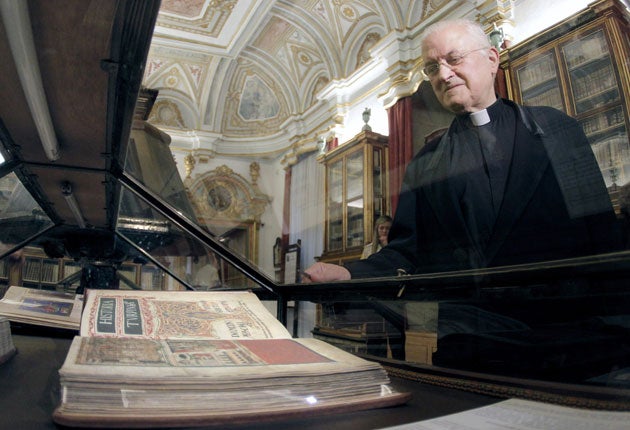Medieval Spanish 'jewel' stolen from cathedral

Your support helps us to tell the story
From reproductive rights to climate change to Big Tech, The Independent is on the ground when the story is developing. Whether it's investigating the financials of Elon Musk's pro-Trump PAC or producing our latest documentary, 'The A Word', which shines a light on the American women fighting for reproductive rights, we know how important it is to parse out the facts from the messaging.
At such a critical moment in US history, we need reporters on the ground. Your donation allows us to keep sending journalists to speak to both sides of the story.
The Independent is trusted by Americans across the entire political spectrum. And unlike many other quality news outlets, we choose not to lock Americans out of our reporting and analysis with paywalls. We believe quality journalism should be available to everyone, paid for by those who can afford it.
Your support makes all the difference.A priceless 12th-century manuscript has disappeared from its vault in the cathedral of Santiago de Compostela in northern Spain. Police suspect that the Codex Calixtinus, considered the "jewel" of the city, was stolen from its closely guarded archive to sell on the black market.
The Codex contains five books of sermons, writings about miracles and what is essentially a medieval travel guide to St James' Way, the pilgrimage route that ends at Santiago and promises pardon from purgatory to those who endure multiple blisters on their feet.
"This is an irreparable loss," said the deputy for cultural affairs at the Santiago de Compostela city hall, Angel Curras. "Santiago must get it back because it is the jewel of the cathedral and the city." He said the disappearance was a "premeditated heist".
Until now, the manuscript was rarely removed from its archive. Scholars were given copies to study, which were also kept in the safe.
Join our commenting forum
Join thought-provoking conversations, follow other Independent readers and see their replies
Comments